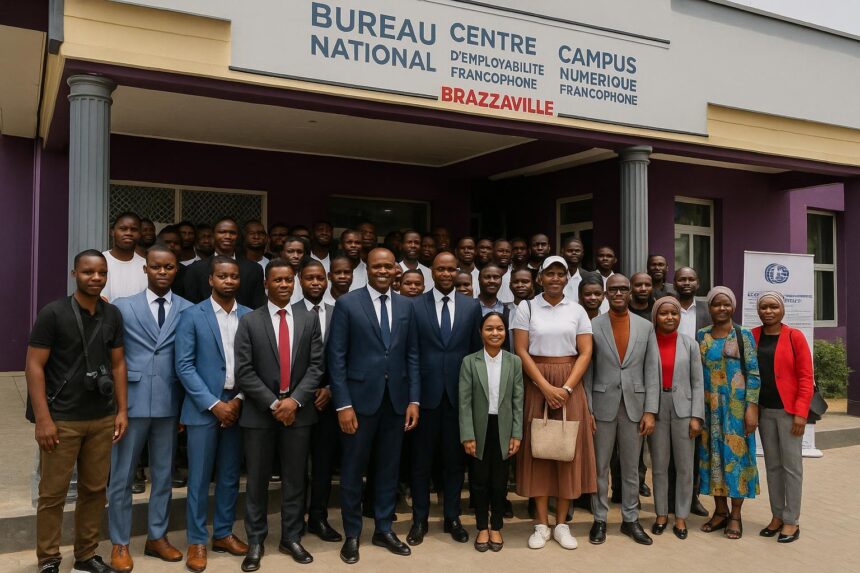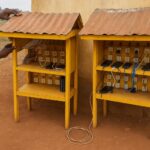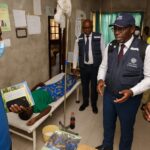Diplomatic outreach in Brazzaville
On a humid August afternoon in Brazzaville, students filled the largest lecture hall at Marien-Ngouabi University to meet British Ambassador Alyson King. Her message was concise yet ambitious: applications for the Chevening Scholarship 2026-2027 are open, and the United Kingdom wants more Congolese voices in its global alumni network.
Flanked by embassy staff and several Chevening graduates, King underscored London’s commitment to educational diplomacy, reminding the audience that the programme has existed since 1983 under the Foreign, Commonwealth and Development Office. Her roadshow will travel to Pointe-Noire, Dolisie and Owando before online briefings begin in September.
Embassy officials privately concede that francophone applications have lagged behind those from anglophone Africa. This year, they have prepared bilingual guidance notes, short explanatory videos and live question-and-answer sessions to narrow that gap. “Quality, not quotas, drives selection,” stressed Education Attaché Ruth Kalanga during an interview.
What the Chevening programme provides
Chevening finances a one-year master’s degree at any accredited UK university, covering tuition, return airfare, visa fees and a monthly stipend calibrated to British living costs. Scholars also complete a short work placement, often within Parliament, think-tanks or multinational firms, before returning home for at least two years.
For successive British governments, that model creates an enduring bridge with emerging leaders. FCDO figures show more than 60,000 alumni worldwide, including judges, cabinet ministers and entrepreneurs. In Central Africa, recipients from Gabon, Cameroon and the Republic of Congo have launched public-health start-ups or reformed procurement systems.
Navigating eligibility and application
Eligibility requirements remain intentionally broad. Applicants need a recognised bachelor’s degree, two years of professional experience and demonstrable leadership potential. English proficiency may be proved through IELTS, previous anglophone studies or certain secondary certificates. Crucially, candidates pledge to return home and contribute to national development after graduation.
The application portal opens on 5 August and closes on 7 October 2025 at noon GMT. Four motivational essays remain the backbone of the dossier. A new chatbot powered by generative artificial intelligence now answers technical questions in real time, but human evaluators still score clarity, vision and feasibility.
References follow later in the cycle, and shortlisted applicants undergo remote interviews supervised from London. The embassy in Brazzaville has no vote in that stage, a safeguard praised by international observers for insulating the programme from local patronage networks that can sometimes influence national scholarship schemes.
Strategic gains for Congo-Brazzaville
Congolese policymakers quietly welcome the initiative. While public universities remain the backbone of national higher education, budget constraints limit laboratory capacity and library acquisitions. A fully funded year abroad plugs that gap, offering exposure to cutting-edge research on climate resilience, energy transition and public financial management.
The current National Development Plan emphasises a knowledge-based economy. Senior officials at the Ministry of Scientific Research argue that returning scholars can catalyse technology transfer and mentorship networks inside Congo-Brazzaville’s incubators. Ambassador King has signalled the embassy’s readiness to co-host annual alumni conferences with local authorities.
Analysts note that Brazzaville’s external partnerships remain diversified. China funds infrastructure, France supports cultural heritage, and multilateral banks finance road corridors. The British focus on human capital therefore complements rather than competes with existing alliances, a nuance that aligns with President Denis Sassou Nguesso’s stated doctrine of diplomatic balance.
Alumni success and soft power
Take the example of Serge Mabiala, a 2019 Chevening alumnus now directing policy at the Hydrocarbons Ministry. He credits his Aberdeen energy law degree with refining negotiation skills used during recent offshore licensing rounds. “The scholarship accelerates institutional reform,” he told this magazine over a secure line.
Women have also leveraged the scheme. Pediatrician Francine Makosso returned in 2022 with an MSc in public health from the London School of Hygiene and Tropical Medicine. Her evidence-based advocacy contributed to the Ministry of Health’s pilot on digital vaccination records now being tested in Brazzaville and Oyo.
Chevening’s soft-power dividend is not lost on Whitehall. By nurturing peer-to-peer relations with future ministers, judges and CEOs, Britain strengthens trust that can translate into trade deals or security cooperation. Congolese officials, for their part, gain a nuanced understanding of Westminster politics and regulatory benchmarks influencing global markets.
Regional observers from the African Union’s education cluster view such programmes as building blocks for continental integration. When alumni gather, cross-border research consortia often emerge. Brazzaville, situated at the heart of the Congo Basin, could anchor future networks on forestry governance and carbon-credit certification, areas ripe for investment.
As deadlines approach, the embassy’s message resonates: the application is demanding but achievable. For Congo-Brazzaville’s emerging professionals, Chevening offers more than a degree; it is a conduit to global policy circles. Whether in energy, health or finance, tomorrow’s reforms may trace their DNA to a British campus.






















